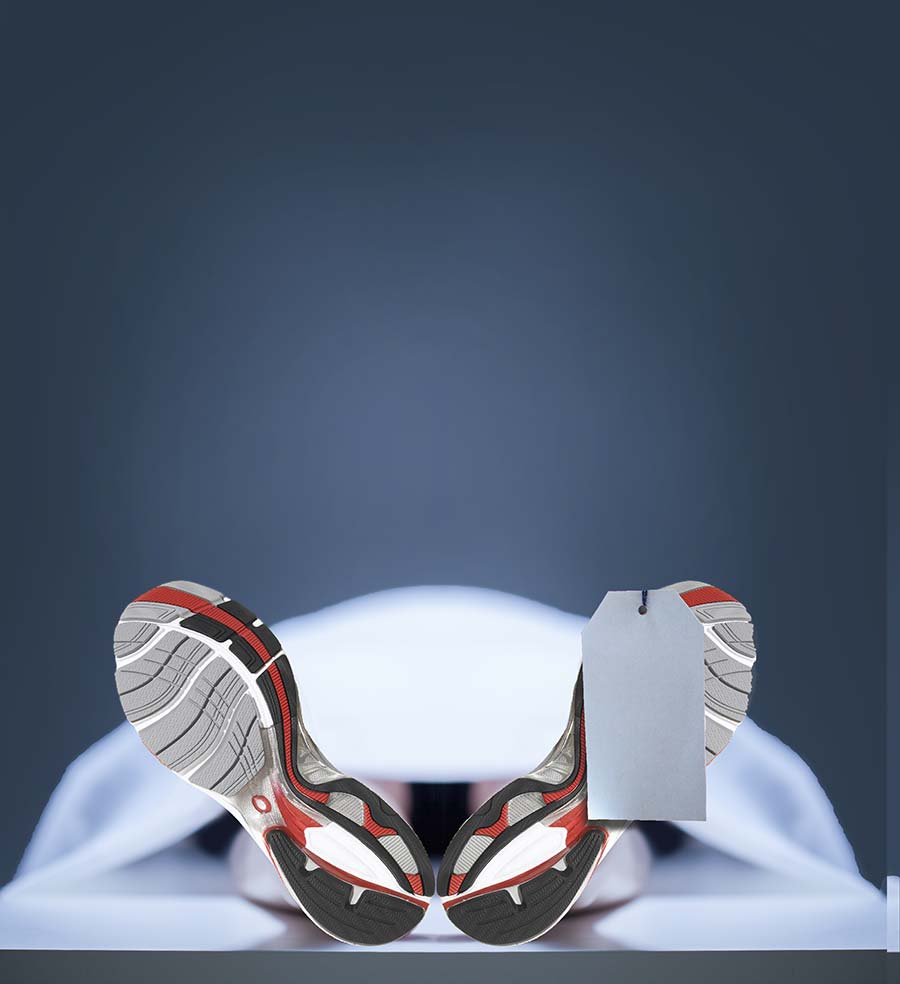Running and your heart: How much is enough? How much is too much?
Writer: Dr. Richard T. Bosshardt
I get plenty of exercise carrying the coffins of my friends who exercise.”—Red Skelton
Everyone knows that running is good for your heart, right? Well, almost everyone. There are those doubting Thomases who seem to believe our hearts have a certain fixed number of heartbeats and once these are used up, you die. For them, the secret to a long life is not more exercise but less. It just makes sense that running is beneficial to our hearts. When you run, you exercise not just your legs and body but your heart as well. Exercise makes muscles stronger, and your heart is a muscle. Therefore, exercise such as running strengthens your heart and if your heart is stronger, you live longer. The logic is unassailable.
Ah, but this is the human body and people are complex and things are rarely ever so simple. What is the truth about running and your heart? Is running good or bad for your heart? Is there such a thing as too much running? How much is that? Should people run at all?
I believe the answer to the last question is a resounding “Yes!” Running, or some other form of regular exercise, has too many benefits backed up by too much science to say otherwise.
The real question for many people is: how much is enough? For some, the question becomes: how much is too much? It seems to be a natural progression for many runners to gradually increase their weekly mileage. The popularity of long-distance races, from 10k (approximately six miles) to half-marathons, full marathons, and beyond attest to this. In 1975, there were just over 16,000 people in the United States who finished a marathon. By 2015, that number ballooned to more than half a million. Are all those people putting their hearts at risk by running so much?
We know that hard physical exercise causes muscle damage and it is the repair process that makes the muscle stronger. Body builders who wish to build bulky muscles have known this for years. Again, the heart is a muscle and working it hard, as happens in running longer distances, can result in similar muscle damage and repair. Studies of dedicated long-distance runners who have run for decades show that this phenomenon is exceedingly rare. It seems that running’s benefits for the heart outweigh the negatives.
Another concern is that running can lead to accelerated atherosclerosis with calcium-rich plaques in the arteries around the heart in some runners. What is interesting is that these plaques tend to be harder and more stable than the softer plaques found in non-runners. The softer plaques are more subject to breaking apart, traveling downstream and blocking arteries, leading to a heart attack. Studies have repeatedly shown that running is more protective of the heart than not running.
The hearts of people who run regularly are different from those of non-runners’ hearts. Runners’ hearts have thicker heart muscle, pump more blood with each heartbeat, and, therefore, beat more slowly. The enlargement of runners’ hearts raised concerns that this might be detrimental to heart function in that it could predispose runners to a heart attack or potentially dangerous, even fatal, irregular heart rhythms.
Non-runners love to point out the instances where a runner simply dropped dead while running. This seems proof positive that running is an inherently dangerous activity. The most famous example is the late Jim Fixx, credited with sparking the running boom of the 1970s with his best-selling book, “The Complete Book of Running.” He dropped dead of a massive heart attack during a routine run.
Many studies have addressed this issue. Most deaths while running occur in those with some form of unrecognized heart disease not caused by the running. With more than 500,000 running marathons each year and many times this running regularly, it is inevitable some will have undiagnosed heart issues and a few will die while running.
Jim Fixx is a perfect example. A postmortem review of his medical history showed he was a formerly obese, ex-smoker whose father had his first heart attack at age 35 and died at 43. Fixx was, therefore, a classic example of someone at high risk of a heart attack. When he died at 52, it is likely that running, rather than shortening and ultimately ending his life, actually helped him live, not just longer, but better as well.
That last one is important. Runners give all sorts of reasons why they run. They feel better, more energetic, feel less stress, enjoy getting outdoors, enjoy the camaraderie of other runners, feel more in tune with their bodies, maintain better control of their weight, and the list goes on. Some, like me, run because they love it; they cannot imagine life without running.
Running increases the quality of life now, not just in some distant future. Even if I believed running might shorten my life by a few years, I know I would still run because it makes my life better today.
Fortunately, in addition to all the other benefits of getting out for a regular run, numerous studies confirm that, on balance, running is good for our hearts and what’s good for our hearts is good for longevity.
In terms of numbers, running five to 10 minutes per day yields proven cardiac benefits. Running more than 30 miles per week yields benefits, but relatively few people have the desire, time, or ability to run more than this routinely. The sweet spot for most people is somewhere between these two extremes. If you are middle-age or older, always check with your doctor before beginning a running program.

